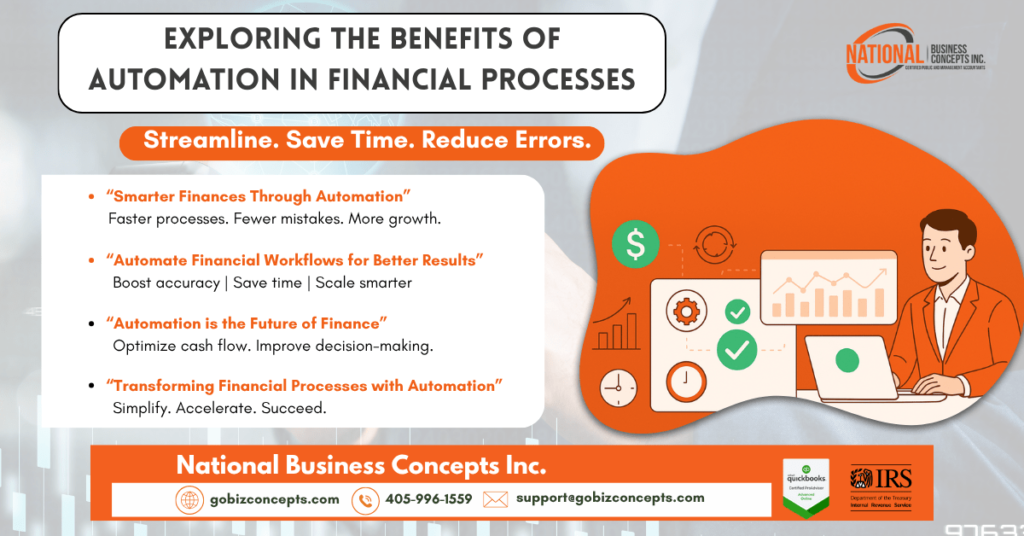Financial Processes
Financial processes refer to standardised and sequenced activities that manage financial transactions, resources, and decision-making within an organization. These processes ensure financial stability, compliance, and strategic planning, encompassing all financial transactions and events with financial repercussions from revenue generation to expense tracking.
As such, on the way to automating financial processes, one must consider that financial processes include the backbone domain of accounting—captures financial events, prepares financial statements, ensures compliance, and provides decision support—and the subdomains of financial planning and analysis(FP&A)—forecasts budgets, analyses financial trends, and supports strategic decisions—, treasury and cash management—oversees liquidity, capital allocation, and risk mitigation in corporate finance—, investment management—focuses on portfolio strategies, asset allocation, and market analysis —, risk and compliance, taxation and regulatory reporting, procurement and vendor payments, payroll processing, and debt and credit management—deals with loans, credit assessments, and repayment strategies.
In traditional finance systems, reports of transactions were received via email or paper, manually entered into the financial systems, approved, and then scheduled for payment. This manual process was slow, error-prone, and required significant human intervention.
Automating Financial Processes
Automation of financial processes refers to the use of technology—such as software, artificial intelligence, and machine learning—to handle routine financial tasks with minimal human intervention. As noted, legacy manual financial reporting processes include accounting automated systems; likewise, automated financial processes extend beyond accounting to include budgeting, financial planning, procurement, fraud detection, risk assessment, and investment management. Accounting process automation focusses on streamlining bookkeeping, financial reporting, ledger management, reconciliations, and tax compliance.
Benefits of Automating Financial Processes
The chief benefits of the automation of financial processes include efficiency and speed, improved accuracy, cost savings, real-time financial insights, improved compliance and risk management, scalability, stronger security, and improved strategic planning. Unavoidable to notice are increased efficiency, speed, enhanced accuracy, reduced errors, smother operations, and compliance achieved through the elimination of manual tasks such as data entry, invoice processing, bookkeeping, calculations, bank reconciliations, and reporting.
Cost savings are realised by reducing the need for manual labour in repetitive tasks and scalability. Automation lowers operational costs and frees up personnel for higher-value financial activities. Automation can easily scale financial operations without exponentially increasing costs, an attribute that makes automation essential for growing enterprises.
Real-time financial insights are achieved through AI-driven analytics and automated reporting that provide instant visibility into financial health, enabling better forecasting, budgeting, and decision-making.
Compliance and risk management are improved through automated systems that ensure adherence to tax laws, financial regulations, and auditing requirements while detecting anomalies that could indicate fraud or financial risk.
Automated financial processes enhance security through fraud detection systems, encryption, and AI-powered monitoring.
Financial automation relieves financial personnel from handling routine tasks allowing a focus on high-value, high-level strategic planning, investment opportunities, and financial growth.
Finally, the automation of financial processes enhances the quality of standardization and formalization. Standardization and formalization involve process mapping and data mapping. These features result in consistency across financial operations, error reduction, regulatory compliance, seamless system integration, improved efficiency and speed, data security and fraud protection, and improved trust and confidence in financial processes.
Regulations and Standards
Financial process automation is subject to various standards and regulations to ensure compliance, security, and ethical financial practices. These regulations vary by region and industry but generally focus on fraud prevention, data protection, and financial integrity. Amongst them are Anti-money Laundering (AML) laws. They include laws and procedures to identify and expose illicit funds. AML regulations in the U.S. grew after the Bank Secrecy Act (BSA) of 1970, requiring financial institutions to report cash deposits over $10,000, collect identifiable information from account owners, and keep transaction records. Associated with this law is the Know Your Customer (KYC) regulatory requirement, in the USA, rooted in the Bank Secrecy Act (BSA) and the USA PATRIOT Act.
There is the Payment Card Industry Data Security Standard (PCI DSS) that protects payment transactions by enforcing security standards for financial automation. It is a standard that ensures encryption and fraud detection in automated payment processing.
Then there are data protection laws like the California Consumer Privacy Act (CCPA) of 2018, which took effect in 2020 (as the California Privacy Rights Act (CAPRA/CPRA,) with requirements for data protection and the General Data Protection Regulation (GDPR), the prototype law in this class, that governs data privacy and security in financial transactions, particularly in the EU. Under these regulations, automated financial systems must comply with strict data protection measures.
Note, that there are other standards and regulations, and financial automation must align with these regulations to ensure security, transparency, and compliance.
Conclusions
Financial processes involve structured activities that manage financial transactions, resources, and decision-making to ensure stability, compliance, and strategic planning. They encompass accounting as a core domain alongside financial planning, treasury management, investment tracking, risk assessment, taxation, procurement, payroll, and debt management. Automation leverages technology—AI, software, and machine learning—to streamline these functions, reducing manual tasks like data entry and reconciliation. Key benefits of financial process automation include efficiency, accuracy, cost savings, real-time insights, compliance, scalability, and security. Financial automation adheres to industry regulations, focusing on fraud prevention, data protection, and financial integrity. Importantly, automation introduces standardization which enhances reliability and operational consistency
By Richard Thomas


